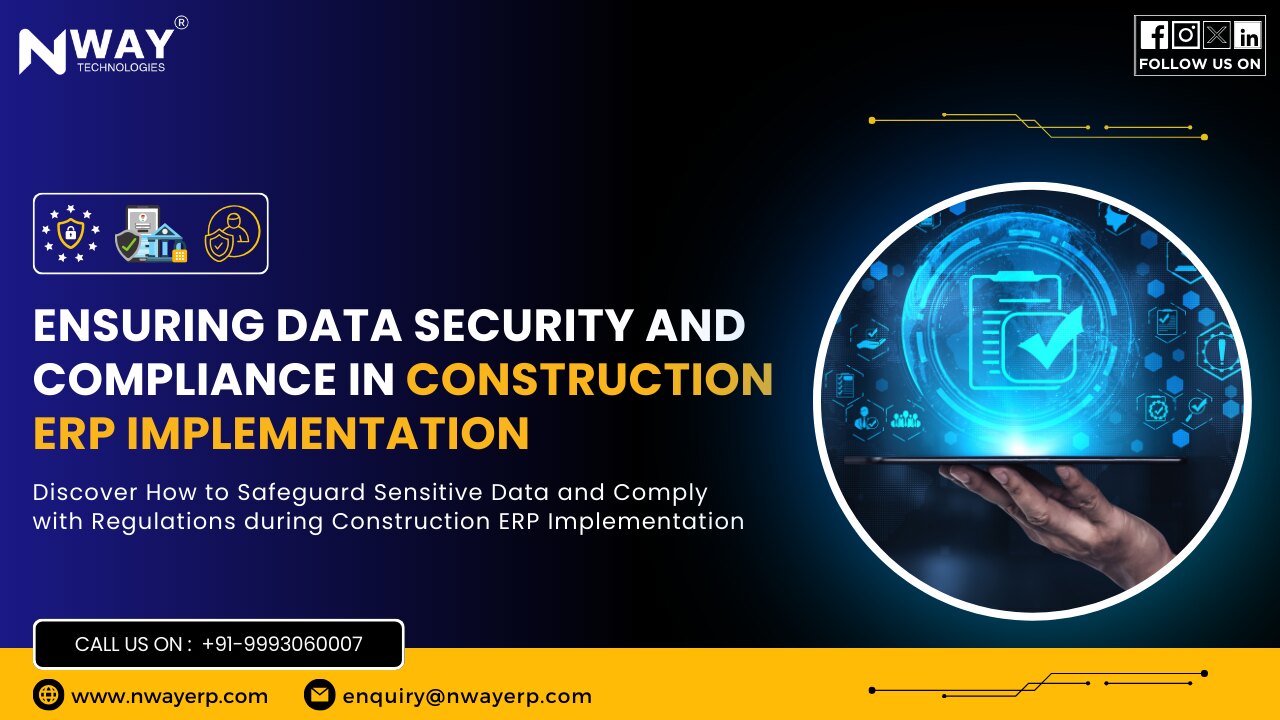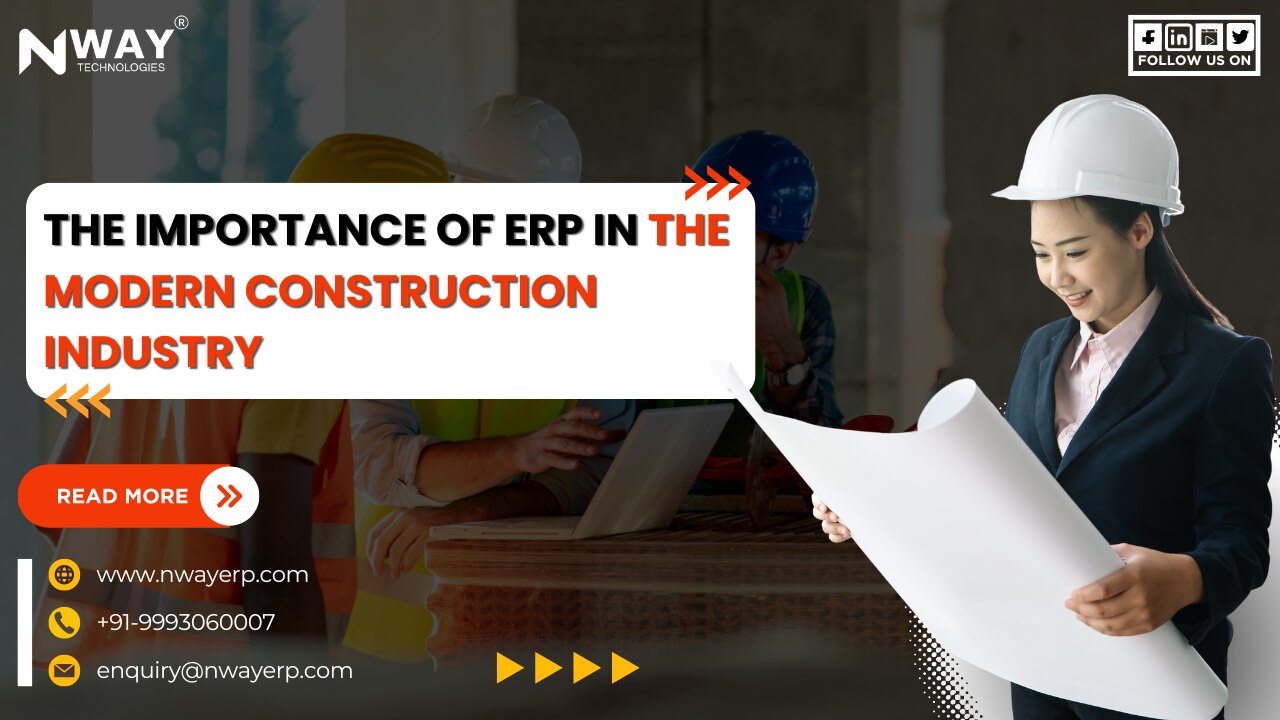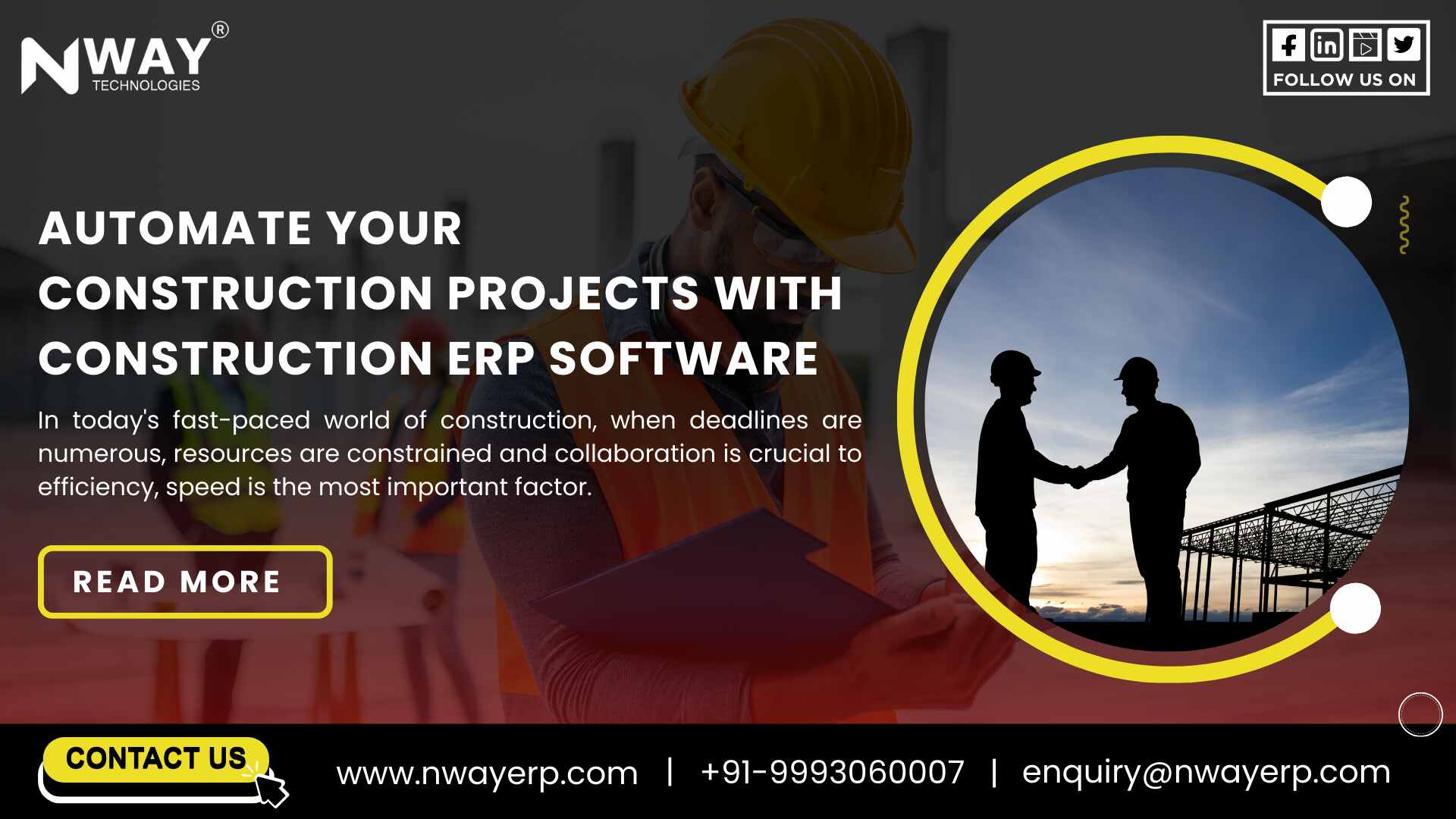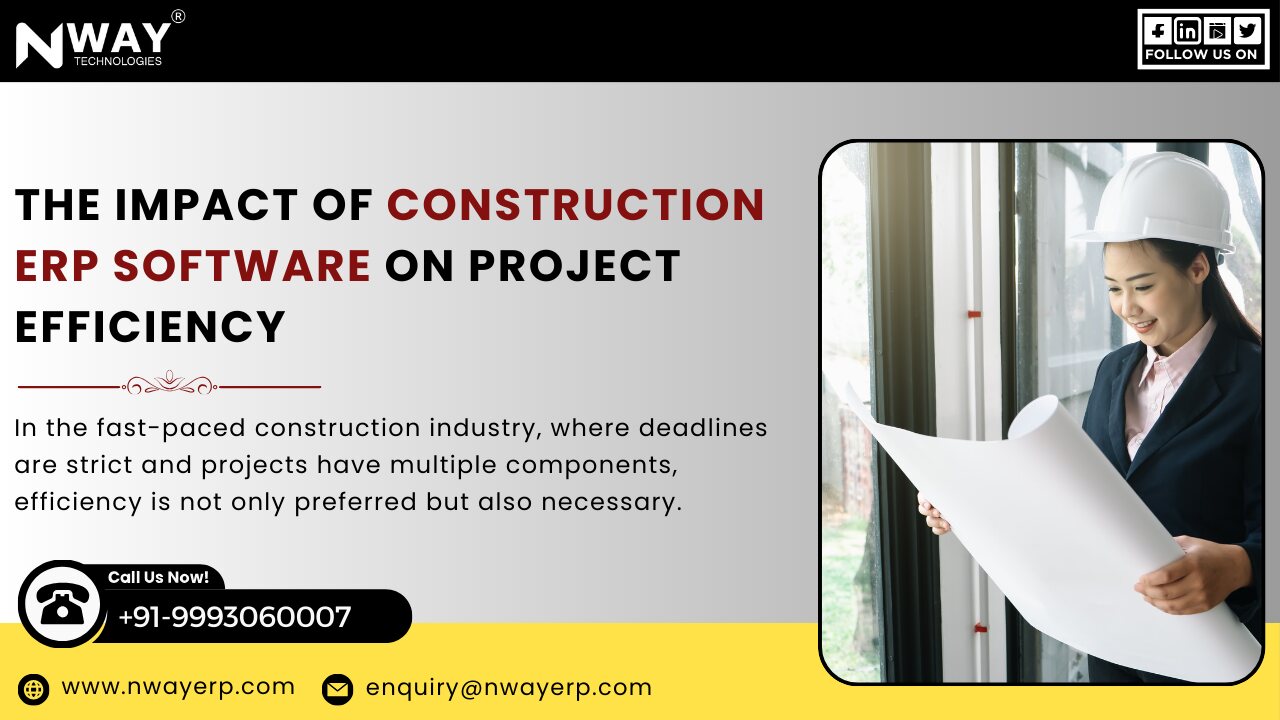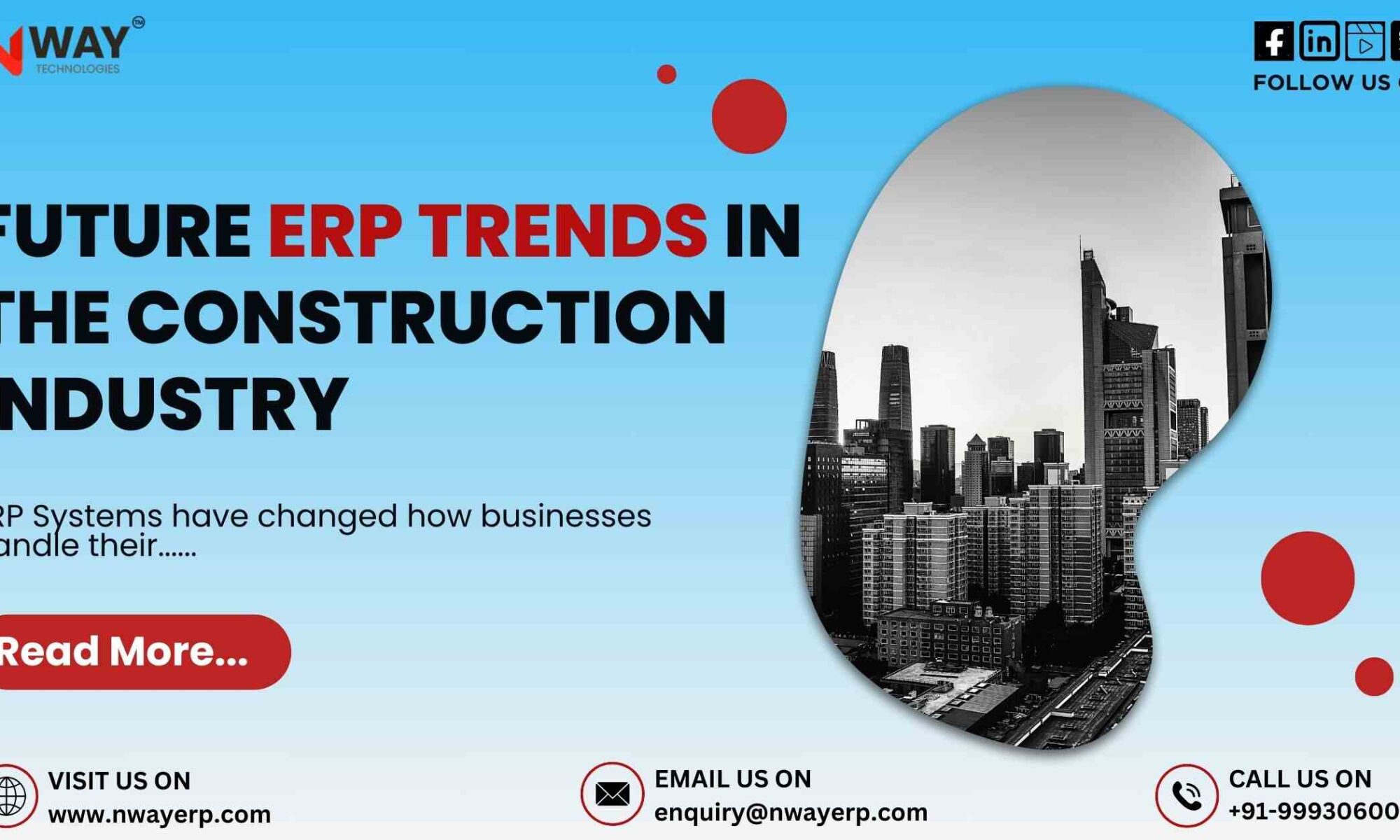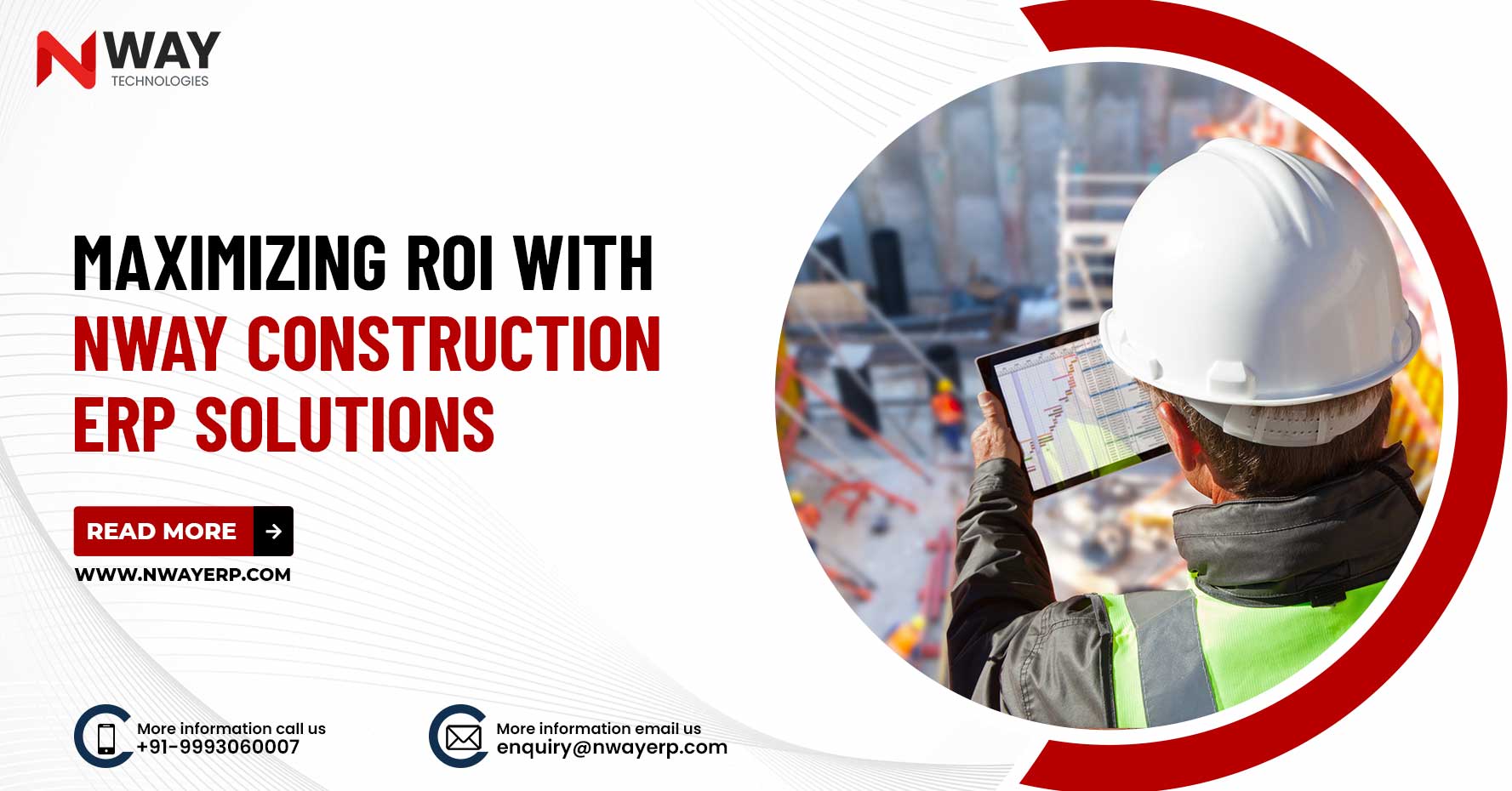Construction industry, the implementation of the Enterprise Resource Planning (ERP) program can greatly improve the efficiency of operations and management of projects. With the introduction of a complete system, the need to ensure data security and compliance become essential. This blog focuses on the crucial issues of security of data and compliance within the context of the construction ERP implementation. It also provides insight into the methods and best practices to secure sensitive information as well as meet the requirements of regulatory authorities.
Understanding the Importance of Data Security in Construction ERP
Security of data is the primary goal of every successful ERP implementation. Construction companies, for instance, it is essential that an ERP software centralizes a large amount of confidential information. This includes projects, financial details, clients’ information, as well as employees’ records. Any breach of security in the data could result in grave consequences, including the loss of money, legal sanctions and harm to a company’s image. So, protecting these data can be vital.
Key Data Security Challenges in Construction ERP
- Data Breaches and Cyber Attacks: Construction firms are getting targeted by cybercriminals due to the important information they store. Cyber attacks, including ransomware, phishing and malware pose serious threats to the security of data.
- Insider Threats: Workers with access to information that is sensitive can intentionally or accidentally breach security of data. These threats are difficult to spot and could result in significant damage.
- Compliance with Regulations: The compliance with the regulations of construction businesses must abide by various laws, like GDPR, CCPA, as well as particular industry norms. Infractions can be a source of huge penalties and legal consequences.
- Integration Vulnerability: The integration of ERP systems into other tools and software can result in security risks if they are not handled correctly. Securing the flow of data between the systems is essential.
Best Practices for Ensuring Data Security in Construction ERP
1. Robust Access Controls
The implementation of strict access control is essential to protect the security of sensitive information. Access control based on role (RBAC) assures employees are only able to access data that is required for the job they are in. MFA, or multi-factor authentication (MFA) provides an additional layer of protection, which reduces the possibility of access being unauthorized.
2. Data Encryption
The encryption of data at stationary and while in transport is crucial to prevent unauthorized access. It ensures that the data gets accessed or is accessed with permission the data remains inaccessible and protected.
3. Regular Security Audits and Penetration Testing
The regular auditing of security and penetration tests can help detect and eliminate weaknesses within the ERP software. This proactive approach ensures that security policies are in place and are effective against new threats.
4. Employee Training and Awareness
They play an essential contribution to protecting data. Regularly scheduled training sessions should train employees on how to spot phishing attacks as well as demonstrating safe online behaviors and understanding the significance of protecting data.
5. Implementing a Data Backup Strategy
Backups of data are vital for recovering data in the event of a system malfunction. Backups should be stored safely and checked regularly to confirm their reliability as well as their effectiveness.
Compliance Considerations in Construction ERP Implementation
Conformity with regulations isn’t just an obligation of law, but crucial to maintaining the trust of stakeholders and customers. Below are some important requirements for compliance in the construction ERP implementation:
Understanding Relevant Regulations
Learn about the rules that apply to your business in the construction industry. In particular , the General Data Protection Regulation (GDPR) is applicable to businesses handling personal information of EU citizens. On the other hand, the California Consumer Privacy Act (CCPA) is applicable to companies that deal with California residents’ information.
Data Privacy Policies
Create and enforce extensive privacy policies regarding data. They define how data about individuals is used, collected as well as stored and secured. Make sure that these policies are made clear to everyone in the organization and all others.
Data Subject Rights
Make sure you have an ERP software that supports the rights of individuals who are data subjects, including the rights to view or rectify their personal data. Develop processes to react quickly to the requests of data subjects.
Regular Compliance Audits
Conduct regular audits of compliance to ensure the ERP system you use and processes for managing data meet the requirements of regulatory agencies. Make any necessary adjustments or corrections discovered during these audits.
Documenting Compliance Efforts
Make sure you keep meticulous records of your actions to comply, which include security policies that protect data, employee documents for training, as well as audit reports. Documentation is vital to demonstrate conformity during inspections by regulatory agencies.
The Role of Technology in Enhancing Data Security and Compliance
Technology advancements are a key factor in improving the security of data and ensuring compliance during the implementation of ERP in construction. These are a few solutions to help you improve your performance:
1. Artificial Intelligence (AI) and Machine Learning (ML)
AI and ML are able to detect and address security risks in real-time. They analyze patterns to find anomalies to enable the proactive mitigation of threats.
2. Blockchain Technology
Blockchain is a safe and transparent method to handle transactions in data. Blockchain’s decentralized structure ensures the integrity of data and lowers the chance of hacking or unauthorized access.
3. Cloud Security Solutions
Cloud-based ERP platforms offer robust security functions, which include automatic updates, encryption of data and disaster recovery alternatives. Check that your cloud provider is in compliance with applicable regulations and guidelines.
4. Security Information and Event Management (SIEM) Systems
SIEM systems analyze and collect information about security from many sources and provide an extensive picture of your security situation. They can be used to identify and prompt response to any potential threat.
READ MORE : Mobile Accessibility in ERP Solutions for Construction Companies
Conclusion
The implementation of a construction ERP software can bring many advantages, ranging from better process management, to more efficient operations. Yet, maintaining data security and conformity is vital to safeguard sensitive information and ensure compliance with regulatory requirements. Implementing the best practices in data security, including robust access controls along with data encryption, frequent security audits and thorough instruction for employees, construction firms can protect their ERP system from potential security risks.
Furthermore, knowing and adhering to the applicable rules, conducting audits of compliance as well as utilizing advanced technology including AI blockchain, cryptocurrencies and cloud security tools can further improve the security of data. An approach that is proactive and comprehensive to security and compliance is not just a way to reduce risk, but also creates confidence with stakeholders and clients and ultimately contributes to the longevity of success for companies in the construction industry.
